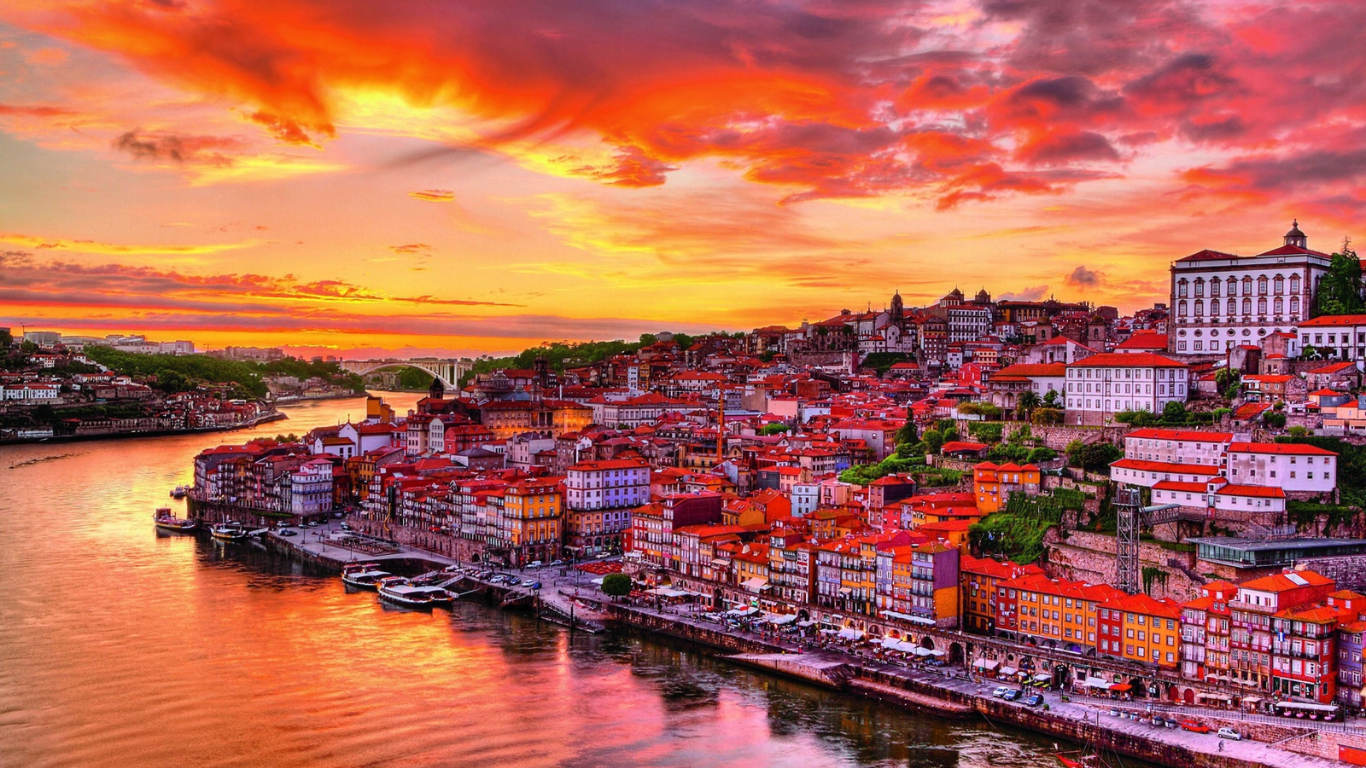Planning a trip to Portugal? Wondering when is the ideal time to visit? Portugal is a captivating destination, known for its stunning beaches, rich history, vibrant cities, and delicious cuisine. Choosing the best time to travel to Portugal depends on what you want to experience—whether it’s exploring cultural festivals, enjoying sun-soaked beach days, or avoiding crowds while hiking through picturesque landscapes. Let’s dive into the seasons and find the perfect time for your visit.
When to Expect the Best Weather
Portugal’s climate varies depending on the region, but overall, it enjoys mild winters and warm summers. Here’s a breakdown of what to expect throughout the year:
Spring (March to May)
Spring in Portugal is one of the best times to visit. Temperatures range from 15°C to 25°C (59°F to 77°F), making it perfect for sightseeing and outdoor activities. The weather is mild, flowers are in bloom, and popular tourist sites aren’t as crowded as in the summer.
- Pros: Comfortable temperatures, fewer tourists, perfect for hiking and sightseeing.
- Cons: Slightly cooler for beach vacations, some rain possible.
Summer (June to August)
Summer is Portugal’s peak tourist season, especially in popular beach destinations like the Algarve and Lisbon. Temperatures range from 25°C to 35°C (77°F to 95°F) in most areas. If you’re a fan of the beach, this is the perfect time to visit Portugal for swimming, sunbathing, and water sports. However, it’s also the busiest time, with higher prices and large crowds.
- Pros: Ideal beach weather, lively atmosphere, plenty of festivals.
- Cons: Higher prices, crowded tourist spots, hot inland regions.
Autumn (September to November)
Autumn is another excellent time to travel to Portugal. The weather remains warm, especially in September and early October, with temperatures ranging from 18°C to 28°C (64°F to 82°F). The crowds begin to thin, and you can enjoy both beach days and city exploration without the intense heat.
- Pros: Mild weather, fewer tourists, great for wine tours and cultural experiences.
- Cons: Beach season may wind down by November, especially in northern Portugal.
Winter (December to February)
Winter in Portugal is generally mild, especially in the southern regions like the Algarve, where temperatures hover around 10°C to 16°C (50°F to 60°F). The northern parts of the country, including Porto, experience cooler and wetter conditions. Winter is the best time to visit if you prefer fewer crowds and lower travel costs.
- Pros: Lower prices, fewer tourists, ideal for city breaks and cultural tours.
- Cons: Cooler temperatures, rain in northern regions, not suitable for beach activities.
When to Avoid the Peak Tourist Rush
The busiest times to travel to Portugal are during the summer months of June to August, especially in coastal areas like the Algarve, Cascais, and Lisbon. If you prefer quieter, more relaxed vacations, consider visiting during the shoulder seasons of spring (March to May) and autumn (September to November). You’ll find fewer crowds at major tourist sites, and prices for accommodations tend to be lower during these periods.
Festivals and Events
Portugal hosts a wide range of vibrant festivals throughout the year. Here are some key events to consider when planning your trip:
- Carnival (February/March): A lively pre-Lenten celebration with parades, music, and dancing, celebrated across the country.
- Festa de São João (June): Held in Porto, this festival honors Saint John with fireworks, concerts, and traditional sardine grilling.
- Feira de São Mateus (August-September): One of the oldest fairs in Portugal, this event takes place in Viseu and offers food, music, and artisan crafts.
- Algarve Seafood Festival (August): A seafood lover’s dream, featuring fresh catches and traditional Portuguese dishes in the coastal town of Olhão.
These festivals provide a unique opportunity to immerse yourself in Portuguese culture. Visiting during festival season can enhance your experience but also means higher tourist numbers.
What to Do in Portugal
Each season in Portugal offers different activities to suit various interests. Here’s what to enjoy depending on when you travel:
- Spring and Autumn: Perfect for hiking in the Douro Valley, exploring national parks like Peneda-Gerês, and visiting historic cities like Lisbon and Porto.
- Summer: Best for beach holidays in the Algarve, water sports in Cascais, and attending vibrant summer festivals.
- Winter: Ideal for city breaks, enjoying cultural experiences like Fado performances, and exploring indoor attractions like museums and historic monasteries.
How Seasons Affect Travel Costs
Your budget can be significantly impacted by the time of year you choose to visit. Portugal’s peak season (summer) tends to be more expensive, with higher prices for flights, accommodations, and activities. For budget-conscious travelers, the shoulder seasons of spring and autumn offer a great balance between good weather and lower costs. Winter, particularly outside of the Christmas holiday period, is the most affordable time to travel, with many hotels and tours offering off-peak discounts.
Finding the Best Time to Travel to Portugal
The best time to travel to Portugal truly depends on what you’re looking for. If you love the beach and vibrant festivals, summer is ideal, but expect higher prices and crowds. For a more relaxed experience with great weather and fewer tourists, spring and autumn are perfect. And if you’re after a quiet, budget-friendly trip, winter offers mild weather and the opportunity to explore Portugal’s rich cultural heritage.
No matter when you visit, Portugal’s beauty, history, and charm are sure to captivate you.





